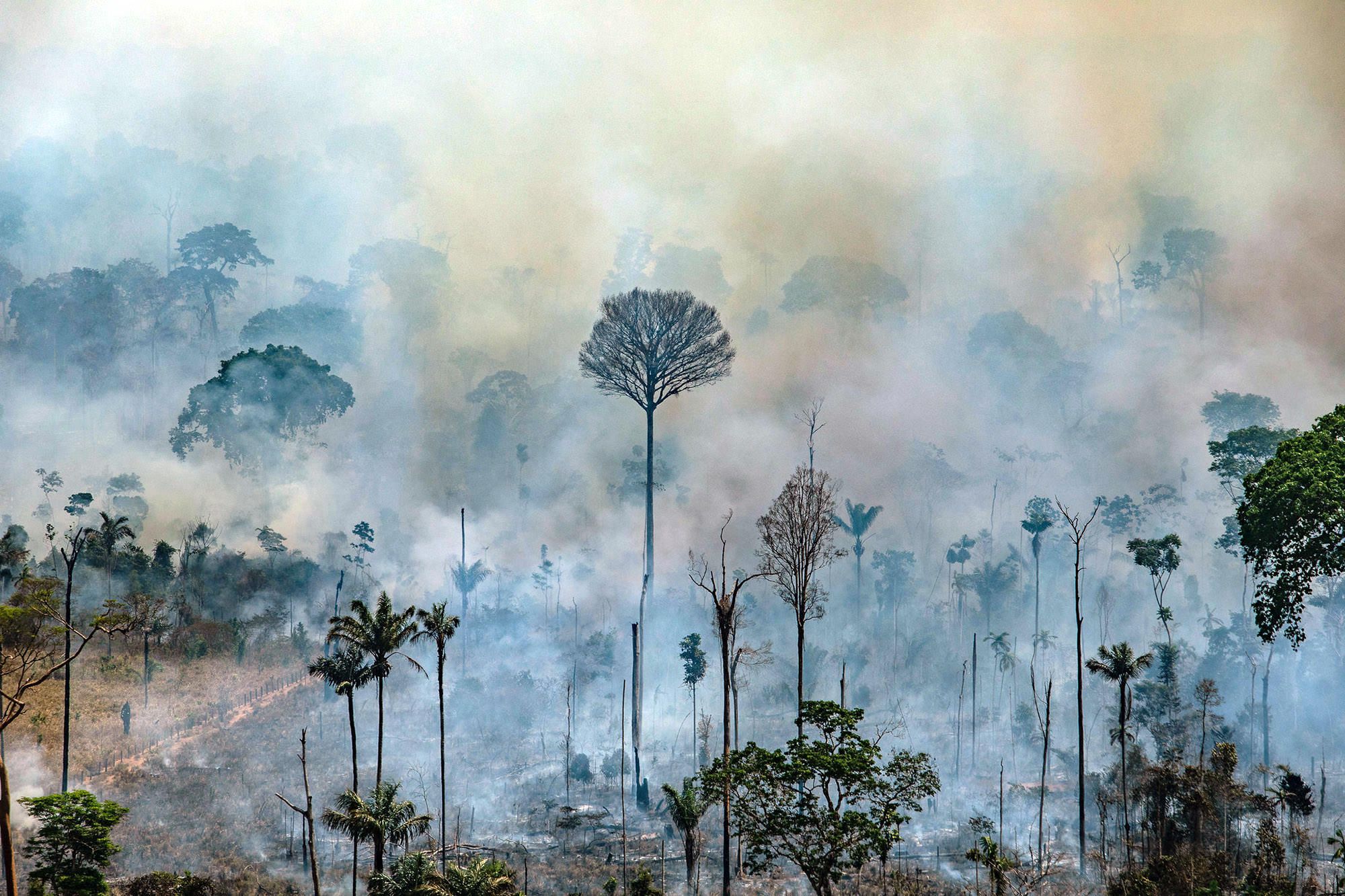Human activity has already disrupted nearly 75 percent of the Earth's surface and put about one million animal and plant species on the endangered list. Representatives of traditional cultures fear that the climate conference in Glasgow has brought no change to the "war with nature" and has only confirmed the existing discrepancy between the proclamations of world leaders and the bare reality.
At the turn of October and November last year, an international meeting called COP26 took place in Glasgow to discuss climate action. Some participating countries have committed to investing in nature-friendly solutions and a greener approach to agriculture.
It is no news that nature is essential to our survival: it provides the oxygen we need to breathe, regulates the weather, supplies food and water to all living creatures, and is home to countless species of wildlife and ecosystems, our lives depend on it.
However, according to the United Nations Environment Programme (UNEP), human activity has already disrupted nearly 75 percent of the Earth's surface and put about one million animal and plant species on the endangered list. U.N. Secretary Antonio Guterres has repeatedly called the status quo a "war on nature." But can we win it if we are an integral part of it? Who is fighting whom here?
COP26
It has been almost three decades since the world's governments have come together almost every year to respond to the climate emergency. COP stands for the global conference under the UNFCCC, whose near-annual meetings have fluctuated between the largely uneventful, also the soporific, some punctuated by moments of high drama or occasional triumph (the Paris Agreement in 2015) and more than once disaster (e.g. Under the 1992 United Nations Framework Convention on Climate Change (UNFCCC), each country is contractually obliged to "eliminate dangerous climate change" and find ways to reduce global greenhouse gas emissions in an equitable manner.
Last year's event, which was attended by 25,000 visitors, opened with a speech by Sir David Attenborough. It said, among other things, that humans have always been "the most capable problem solvers that have ever existed on Earth" and shared his optimistic visions for the future. But he ended his speech with a sigh: "In my lifetime, I witnessed a terrible decline. But you should witness an amazing healing."
The new commitment of 2021 aims to transform agriculture and food systems through policy reforms, research and innovation to reduce emissions, protect nature, while ensuring food and jobs. During this session, the "Glasgow Declaration on Forests and Land Use" was also adopted by a majority. However, the declaration itself does not mean meaningful action.
The paradox of the first victims
Although traditional cultures have contributed almost zero to climate change, they are among its most vulnerable victims, standing literally at the frontline of those who are feeling the crisis first-hand. For example, for Indians, the Amazon rainforest is not just a remote patch of green that scientists say is the lungs of the world, but their home, their food source and their medicine cabinet.
Within the framework of the above-mentioned Declaration, national government representatives promise to strengthen their joint efforts to preserve forest and other terrestrial ecosystems and accelerate their restoration, as well as to facilitate sustainable trade and development policies at the international and domestic levels. The text also draws attention to the empowerment of local communities, including indigenous peoples, who are directly affected by the exploitation and degradation of forests. But will flashy words really be put into practice?
An example of different words on paper compared to practice is the situation in Colombia. Daniela Balaguera comes from the traditional culture of the Arhuaco tribe residing in the north of this country. This indigenous tribe lives in the isolated Sierra Nevada Santa Marta, which crosses the center of the country and provides shelter for the flow of 36 different rivers. "Our territories have been recognized as sacred. They serve to protect the environment, but in reality they are not treated as such. If they are protected areas, they should be given guarantees and rights that, although recognized, do not apply," the United Nations (UN) online media outlet said in a statement. "We are threatened with a second wave of extinction of our cultural practices, which is extremely worrying because it would be the second massacre, the second extermination of our people," she said.
Among the endangered Indian tribes are among others the inhabitants of the rainforest in the north of Brazil, the Huni Kuin Indians. In recent years, they have been grappling with President Jair Bolsonaro's relentless efforts to deny them rights to their territory so that it can be used by miners, and his statements calling their traditional culture primitive. "A key issue for forest nations is the unauthorised deforestation of their territory. The government of Jair Bolsonaro seeks to seize land belonging to the Indians through the PL 490 act, which in turn would mean that the Indians will lose their homes. Oil extraction that pollutes the water from which the Indians have always drank and fished. Climate change causes more and more flooding in the rainy season, when Indians have flooded their homes and lose their crops. Last but not least, government tendencies also apply to limiting the right to life of Indians as they have been living it for thousands of years," said Lucie Havlínová from the Sarava project, whose intention is to support Indians and spread the ancient wisdom that Indians share.
From another point of view
Charles Eisenstein is an American writer who speaks publicly on topics related to the history of human civilization, economics, spirituality, and ecology. In his penultimate book, Climate - A New Story (2019), he presents a confident message that highlights the pitfalls of current efforts to address the climate crisis, what he calls "carbon reductionism." Eisenstein also brings to light the problematic nature of the whole concept of sustainable growth, which is supposed to be achieved by simply transforming the energy sector from fossil fuels to renewables. He regards such an approach as a dangerous illusion, because any growth today means turning nature into resources, goods and money. Instead, we should (in his view) aim for a complete transformation of contemporary civilisation. We should open the way to a world where development does not mean growth, where the abstract does not dominate the real and the quantitative does not subjugate the qualitative. At the heart of this new narrative is "awakening to the living earth" because, as Eisenstein argues, "only life provides the conditions for life." In this context, he proposes a new ordering of priorities for how to approach addressing the climate crisis, one that represents a comprehensive program of Earth regeneration.
Translating some of Eisenstein's writings and essays is historian, curator and columnist Jiri Zemanek, who comments on the subject, "First and foremost, we should paint it with all ecocide, including forest extinction and land degradation, biodiversity loss, species extinction, dying oceans, air pollution, and last but not least, of course, the climate crisis. Address environmental ethics and establish the rights of nature. There really is a lot that needs to be done when the coronavirus clause ends."
Whether individual states succeed in implementing the COP26 recommendations, or rather – whether they will at least try to do so – will not necessarily be known for once from television news and media outlets, but sooner or later we will feel it for ourselves.
The article was published in a modified form in the February issue of the Regeneration magazine.
Author.)











